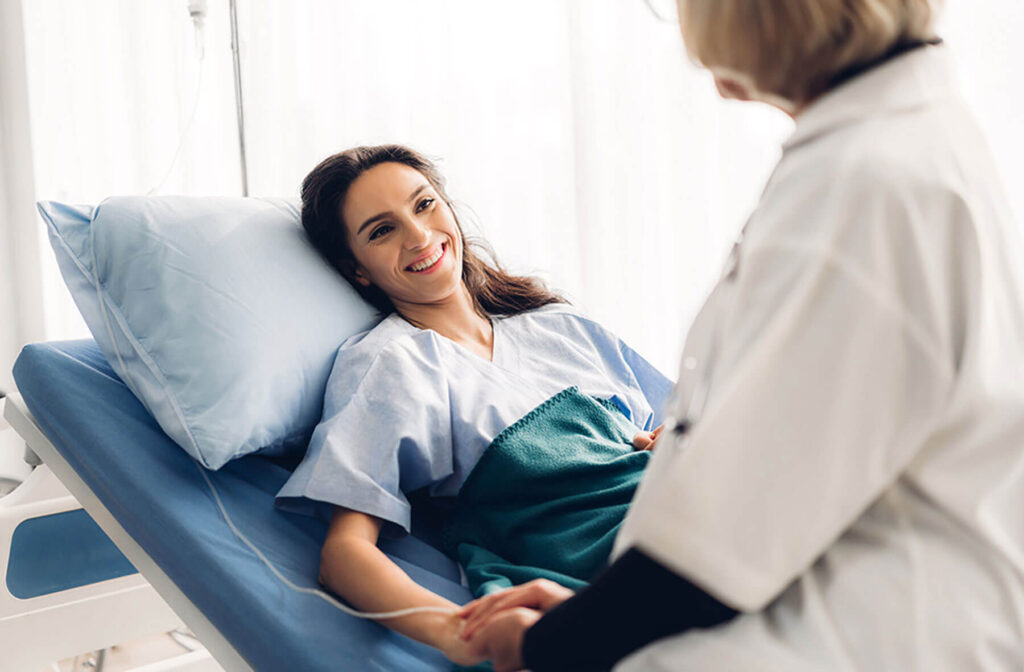
Complete Women Health Check up
Health checks have a number of advantages for women. Regular health checks keep potential health issues at bay and nip any developing problems in the bud. In some cases, they can even save lives since problems such as breast cancer can be treated in the early stages, and preventive measures can be taken.
The following are some of the other benefits of regular health checks for women:
• Regular health check-ups reduce the risk of falling seriously ill.
• There are better chances of the treatments or cures working well when there are regular health check-ups.
• Regular health check-ups make it easier to maintain good health.
• Giving your doctor a good idea of your health history can make diagnosis easier and more accurate.
• It also helps people to be aware of the latest threats and precautions for health.
• Regular health check-ups have a great advantage of detecting life-threatening health conditions in the early stages when they are treatable.
• There is a significant reduction in symptoms becoming complicated because regular health checks monitor any developments closely, and appropriate measures can be taken in a timely fashion.
• Since regular health checks can deal with major health issues efficiently and at the early stages, the cost of medical expenditure is reduced.
Health checks for women
Women are susceptible to several health problems, although a lot of them can be dealt with if one’s health is taken care of and lifestyle is managed well. That is where health checks come in handy.
Several doctors recommend the following health checks for women:
1. Cervical screening test: Cervical cancer is one of the most treatable cancers. A cervical screening test helps detect early signs of cervical cancer if any. It is recommended that a cervical screening test be taken once every five years until the age of 75.
2. HPV testing alone can be considered for women who are between 25 and 29 years of age.
1. Women aged 21 through 29 should be screened with a Pap test every 3 years.
2. Women aged 30 through 65 should be screened with any of three tests:
1. High-risk HPV testing alone every 5 years
2. Pap and high-risk HPV co-testing every 5 years
3. Pap test alone every 3 years
These screenings help detect cervical cancer early. For women aged 30 or older, both HPV/Pap co-testing and HPV testing alone are more sensitive than Pap testing alone.
1. STI tests: It is recommended that women who are sexually active have tests done for chlamydia regularly. Chlamydia sometimes does not have any symptoms and can affect fertility.
2. Pregnancy check-up: It is recommended to have a general check-up done before planning a pregnancy to help identify and treat any potential risks.
3. Blood test: Getting blood tests done to check for cholesterol should also be a part of health check-ups for women.
4. Check-ups for breast cancer: Women who do not have any history of breast cancer are recommended to have a screening mammogram every two years from the ages of 50 to 75.
5. Eye health checks: As women age, their vision deteriorates. Hence proving the importance of health checks for women where their eyes are concerned. If issues in vision are detected early, due precautions can be taken to ensure the prolonging of eye health.
6. Bowel cancer checks: If detected in the early stages, there are good chances of recovery. A fecal occult blood test can be done to screen for signs of bowel cancer. It is recommended that women between the ages of 50 and 70 have a fecal occult blood test every two years.
7. Diabetes check-ups: women are at risk for diabetes if they are :
1. Above 45 years of age and have BMI over 30
2. Suffer from PCOS or polycystic ovary syndrome
3. Have a history of diabetes in the family
4. Have had gestational diabetes during pregnancy
